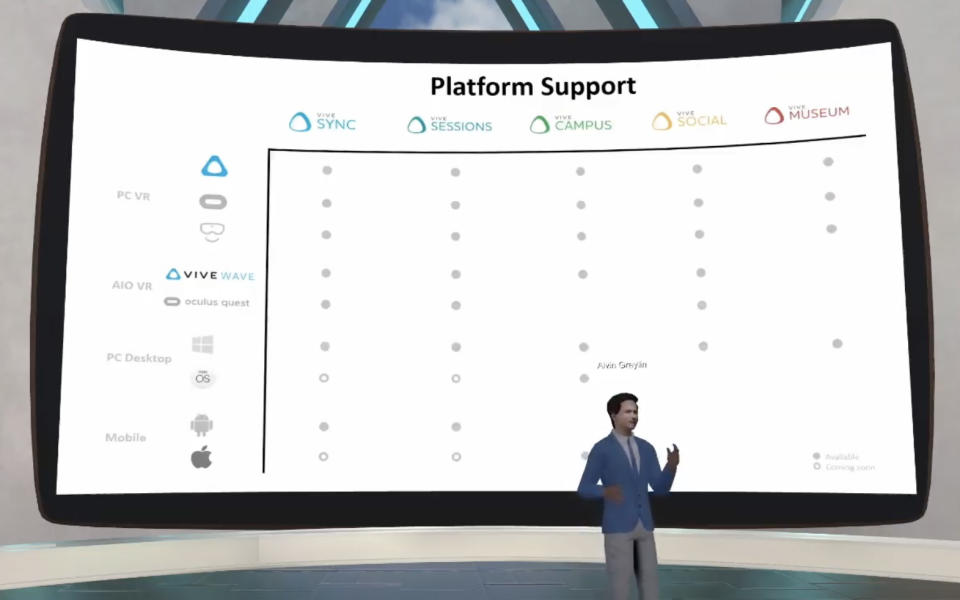Engadget has been testing and reviewing consumer tech since 2004. Our stories may include affiliate links; if you buy something through a link, we may earn a commission. Read more about how we evaluate products.
HTC's Vive XR Suite is now available for VR collaboration
And HTC's next standalone VR headset will arrive next year.
Following the official announcement of Vive XR Suite in June, today HTC is finally making its VR collaboration tool available to all, giving users full access to all five apps on their desired platform or type of device — be it a VR headset, computer or smartphone. Subscription starts at $30 per seat per month, or $250 per seat per year. This works out to be more affordable than subscribing to a professional account for each app, which is needed if you want to create and schedule events.

Vive XR Suite currently consists of Vive Sync for remote collaboration, Vive Sessions for virtual conferences, Vive Campus for virtual lectures, Vive Social for hanging out with friends in VR, and Vive Museum for VR exhibitions. With the exception of Vive Sync, these are powered by third parties — Engage, VirBELA, VRChat and Museum of Other Realities, respectively — which happen to be invested by HTC.
HTC’s China President Alvin Wang Graylin told Engadget that while Vive XR Suite is officially launched in EMEA and China, you can actually access this service — including its one-month trial — from anywhere around the world. The exec added that NVIDIA and Accenture, which are distribution and integration partners of Vive XR Suite, also use the platform internally. As for hardware support, HP’s PCs and Pico’s VR headsets will be preloaded with Vive XR Suite, and Nreal will even be customizing the software for its Light mixed reality glasses.

At the same event today, Qualcomm’s Head of XR Hugo Swart told us to expect many new standalone VR headsets — based on the same Snapdragon XR2 chipset as the Oculus Quest 2 — to be launched in China between now and the first half of next year. Like most existing standalone headsets, these will run on the Vive Wave platform. As for the successor to HTC’s very own Vive Focus Plus, Graylin confirmed that this won’t happen until 2021, though he didn’t comment on whether it will include 5G connectivity, nor whether it would look anything like the preview back in February.

 money
money 